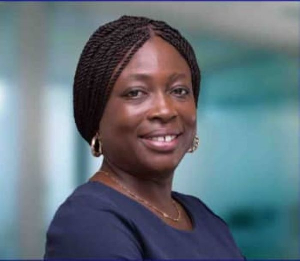Opinions of Wednesday, 11 July 2012
Columnist: Mensah, Kobby
Neither left nor right
: Stripping bare the ideology myth of African Politics
Political parties in Africa, including Ghana, just like those of the West, describe and position themselves either to the left or to the right of the ideological continuum. However, certain practical factors, and sometimes forces from the same West where they share in these identities, render these classifications useless, frankly. For example, in the early 1980s to the 1990s, the PNDC administration, which later metamorphosed into a social democratic party, NDC when the country was returned to a democratic path in 1992 were forced by the Bretton Woods Institutions (World Bank and the IMF) to adopt the Economic Recovery Programme (ERP) and the Structural Adjustment Programme (SAP) respectively. Essentially, these programmes had imbedded in them the much feared buzzword “Cost Recovery.”
For decades “cost recovery” became the buzzword with which the IMF and the World Bank offered support to ailing African economies, regardless of which ideology was in power. In Ghana for example, the infamous “cash and carry” system became the symbol that defined the nation’s health system, and to a larger extent, defined the entire economic system of Ghana. The “cash and carry” system that the Bretton Woods Institutions shoved under the throats of Ghanaians, administered by the social democratic NDC government, was so definitive that it contributed to the defeat of the NDC party in the much talked about December 2000 elections. So how come a party and a government that prides itself to be social democratic with leftist agenda of social interventionism not able to stand up to those forces in the interest of the very people it claimed to serve? And could they lay claim to that identity they professed when were obviously dictated to on how they should serve the people? Similar questions could be asked of the right, however.
The NPP party, which is of the right in Ghanaian politics, usually differentiates itself from the competition, and to voters, from two perspectives: first, based on its traditional ideals of free enterprise, which the party refers to as property-owning democracy‘; secondly, the party differentiates itself based on its perceived behavioural values as the true beholder of the rule of law, free speech, and fundamental human rights. However, leading to the 2000 elections, the NPP‘s central ideal of free enterprise, or property-owning democracy, was under attack and was labelled as the mouthpiece of the privileged in society. As a result, the party adapted this ideal, which was evident in the kinds of policies that it formulated. Some may, and could argue, that they abandoned that ideal for the sake of practicality, or pragmatism for that matter.
To clarify this view, a reference to Peter Drucker‘s analysis of the free enterprise ideals is appropriate. Drucker asserts that “what characterizes capitalism is the belief in free enterprise economic system.” Drucker posits that although the idea of free enterprise does not welcome government‘s limitation on business, it does not exclude its regulation either. Essentially, the responsibility of a government, according to the free enterprise ideal, is to provide the enabling framework within which business is conducted, but not to run business enterprises itself.
However, the free enterprise ideal, as explained by Drucker, also suggests that although business should be in private hands, government ownership of certain public utilities such as rail transport, does not violate the basic tenet of free enterprise, should their management be in the hands of men who are neither appointed by, nor responsible to, any political agency other than the court of law.
This latter part of Drucker‘s explanation may differ from country to country, it could be argued, based on the level of institutional dependence on, or independence from, the state; which in turn, is associated with the level of development, type of political system, and the level of democratic practices. Therefore, a pure free enterprise ideal is one that could be described as Americanized; situated within the laws and regulations of the United States where the fundamental principle of free enterprise, within the definition of Drucker, is widely applied.
In the 2000 elections, the NPP‘s policies differed from the core belief of the free enterprise ideal that Drucker demonstrates above. To understand the NPP‘s policy positions in the 2000 elections within the theory of the free enterprise, as Drucker examined in his explanation of capitalism, one would expect that an NPP administration would only provide the enabling environment for the private sector to offer solutions to the issues that faced Ghanaians in areas such as health care, jobs, housing, education, transportation, and others. Instead, the party formulated programmes such as the National Youth Employment Scheme, the National Health Insurance Scheme, the School Feeding Programme, the Metro Mass Transportation, and Affordable Housing, to mention but few, when in government.
These policies are based on centre-left as opposed to centre-right ideals. With this understanding, it is possible to argue that the NPP party adapted its beliefs on the free enterprise ideal, which is core to its identity, towards the centre-left. But this argument is not conclusive unless details on how the party implemented and ran such policy programmes are given, which is the second part of Drucker‘s analysis. For example, did the NPP government set up the programmes with private involvement? Where was capital sourced and who constituted the daily running of the programmes, the private or public sector? Essentially, who are the main players to the factors of production—land, labour, and capital? In the case of the NPP in 2000, the government was the main player.
By: Dr. Kobby Mensah
http://kobbymensah.com/blog












